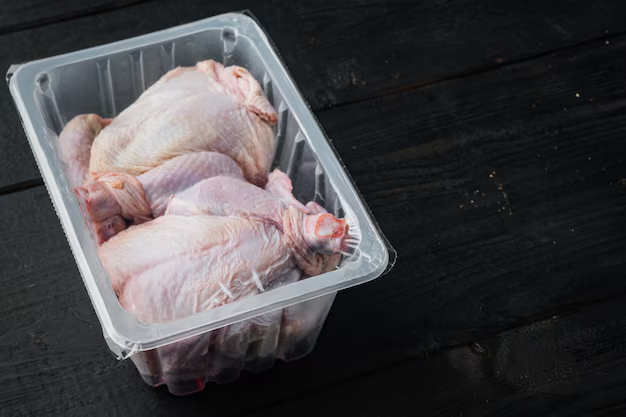How Long Can You Keep a Defrosted Turkey in the Fridge? Everything You Need to Know
Have you ever found yourself with a defrosted turkey in the refrigerator and wondered how long it will stay fresh? Proper food handling and storage practices are essential to ensure safety and quality, preventing foodborne illnesses and unnecessary waste. This article will guide you through the ins and outs of storing defrosted turkey, offering you practical advice and answering common questions along the way.
🦃 Defrosting Basics: Start with Safe Practices
Before diving into the specifics of storing a defrosted turkey, it’s essential to start with the basics of defrosting. Proper defrosting ensures the turkey remains safe to eat and retains its quality.
H3: Methods of Defrosting Turkey
- Refrigerator Defrosting: This method is both safe and effective. Place the turkey on a tray to catch drips and allow around 24 hours for every 4 to 5 pounds of turkey. This controlled environment helps prevent bacteria growth.
- Cold Water Defrosting: If you're short on time, immerse the turkey in cold water, changing the water every 30 minutes. Thawing takes about 30 minutes per pound.
- Microwave Defrosting: Suitable for smaller birds, but requires immediate cooking to ensure safety due to partial cooking.
H3: Why Proper Defrosting Matters
Defrosting improperly may lead to bacterial growth, especially in the temperature range known as the "danger zone" (40°F - 140°F). Keeping your turkey out of this zone as much as possible is crucial to maintain its safety and quality.
🥶 How Long Can a Defrosted Turkey Stay in the Fridge?
Once your turkey is fully defrosted using one of the methods above, you need to store it properly in the refrigerator to keep it safe and flavorful until it’s time to cook.
H3: General Guidelines for Storing Defrosted Turkey
- Refrigerated Life: A defrosted turkey will remain safe in the refrigerator for 1 to 2 days. The cool temperature slows down bacterial growth, extending its shelf life.
- Storage Placement: Store the turkey on the bottom shelf to prevent cross-contamination and to capture any potential drips.
H3: Factors Affecting Storage Time
- Temperature Changes: Frequent changes in refrigerator temperature might affect how long your turkey remains fresh. Aim for a constant fridge temperature of 40°F (4°C) or lower.
- Size and Freshness: Larger turkeys or those that have been in the freezer for an extended period might display different freshness levels once defrosted.
🍽️ Making the Most of Stored Turkey
Knowing you have a limited timeframe for your defrosted turkey, it’s beneficial to plan ahead. Consider culinary creativity and safety by putting your turkey to good use.
H3: Preparing Turkey Dishes Within Time Frame
- Immediate Cooking: Even if you plan to marinate or prepare complex dishes, ensure cooking is completed within the 1-2 day window.
- Batch Cooking: Cook the turkey in advance and store portions for future meals, saving time and extending usability.
H3: Delicious Leftover Ideas
- Creative Repurposing: Don’t let leftovers go to waste. Consider making turkey soups, salads, or sandwiches.
- Freezing Cooked Turkey: If you have more turkey than you can consume within a few days, cooked turkey can be frozen and used later. Store in airtight containers or freezer bags.
💡 Key Tips for Handling & Storing Turkey
Here’s a concise visual summary of tips for effectively handling and storing a defrosted turkey. 📝
- 🦃 Defrost Safely: Use the fridge for gradual defrosting or cold water if rushed.
- 📅 Use Timeline: Prepare or cook defrosted turkey within 1-2 days.
- 🥶 Store Correctly: Keep turkey on the fridge's bottom shelf at ≤ 40°F.
- ❄️ Cook Then Freeze: Consider cooking and freezing turkey if exceeding the safe fridge time.
- 🍲 Get Creative: Turn leftovers into new meals to eliminate waste.
Use this advice as a foundational guide to safely and effectively enjoy your defrosted turkey without worry.
Understanding Food Safety Beyond Turkey
While turkey is a popular choice for gatherings and holidays, understanding the principles of food safety can be applied to other foods and situations.
H3: General Food Safety Practices
- Cross-Contamination Prevention: Always use separate cutting boards and utensils for raw and cooked foods.
- Thorough Cooking: Ensure the internal temperature of meats reaches safe levels (165°F for turkey).
- Prompt Storage: Refrigerate leftovers within two hours of cooking to limit bacterial growth.
H3: Benefits of Awareness
- Reduced Waste: Knowledge of shelf life helps in planning meals and reducing thrown out food.
- Confidence in Cooking: Understanding safety measures allows for experimentation with meal prepping or hosting events without stress.
Bringing It All Together
Navigating the world of food storage effectively requires an understanding of key principles—especially when it comes to a sizable item like a turkey. By observing proper defrosting methods, adhering to storage timelines, and creatively using leftovers, you're set to enjoy your turkey safely and fully. This understanding not only enhances your cooking experience but ensures the safety of those you share meals with.
Whether you're planning a festive feast or simply preparing for a family dinner, applying this guidance will help ensure your turkey experience is both delicious and stress-free. Enjoy your culinary journey, and happy cooking!

